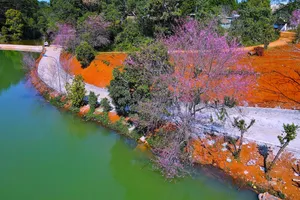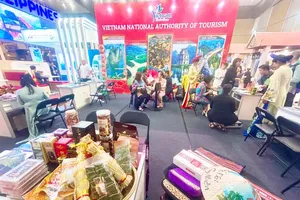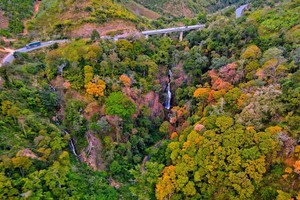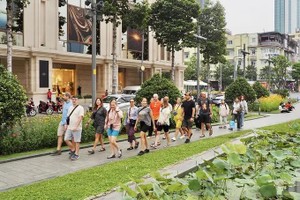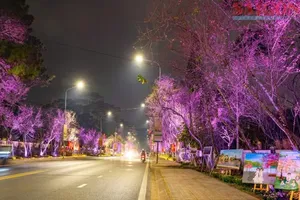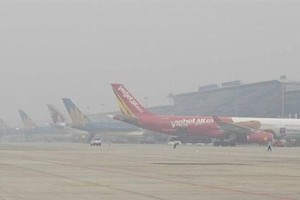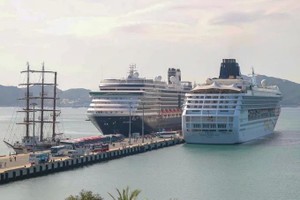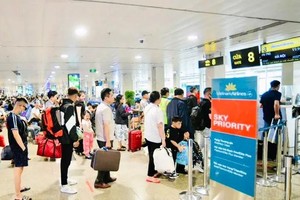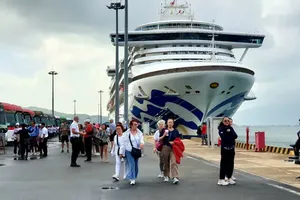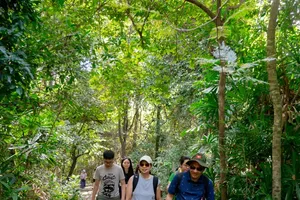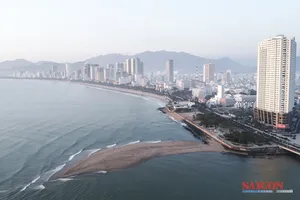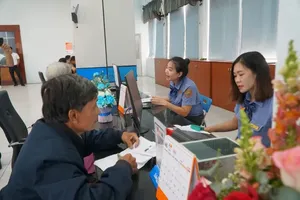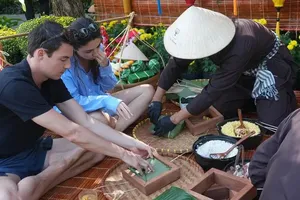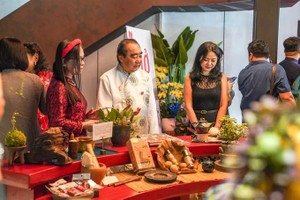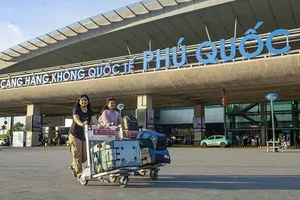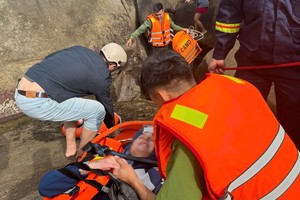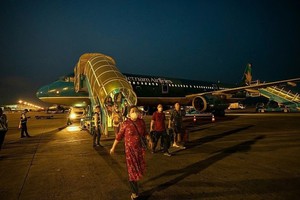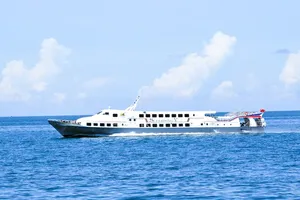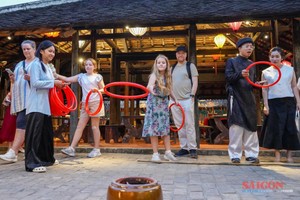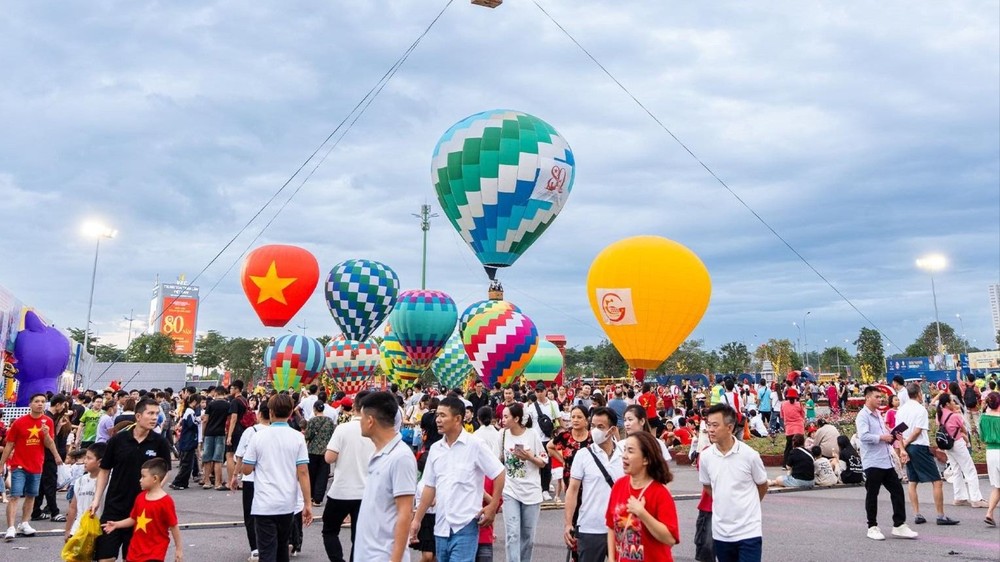
According to the city’s Department of Tourism, the capital welcomed an estimated 2.08 million visitors during the four-day break (August 30–September 2)—three times higher than the same period in 2024.
Of this total, international arrivals exceeded 80,000, a 35 percent increase. Tourism revenue reached an unprecedented US$177 million, surging by 80 percent year-on-year.
The festive spirit permeated every corner of the city as Hanoi staged a wide array of cultural and artistic events marking the 80th anniversary of National Day. From Ba Dinh Square to Hoan Kiem Lake and the Thang Long Imperial Citadel, tens of thousands of visitors flocked to exhibitions, performances, and interactive experiences. Notably, the exhibition 80 Years of Independence – Freedom – Happiness at the National Exhibition Center attracted more than one million visitors in just three days.
Accommodation demand skyrocketed, with three- to five-star hotels averaging 83 percent occupancy—many fully booked on the night of September 1. Leading attractions experienced dramatic surges in foot traffic: Hanoi Zoo and the Thang Long Imperial Citadel each welcomed approximately 33,000 visitors; the Temple of Literature drew nearly 18,000; and Hoa Lo Prison had over 26,000 visitors.
In a symbolic gesture, the Hanoi Department of Tourism and the Ho Chi Minh Mausoleum Management Board distributed 35,000 gifts to visitors paying tribute at the Mausoleum, leaving a lasting impression on both domestic and international tourists.
Complementing these activities, light shows, 3D mapping, parades, and fireworks at five major locations turned Hanoi into the epicenter of nationwide festivities.
Across the Mekong Delta, meanwhile, a different kind of charm drew both local and foreign travelers. Beyond sightseeing and sampling rustic cuisine, visitors immersed themselves in the everyday rhythms of delta life.
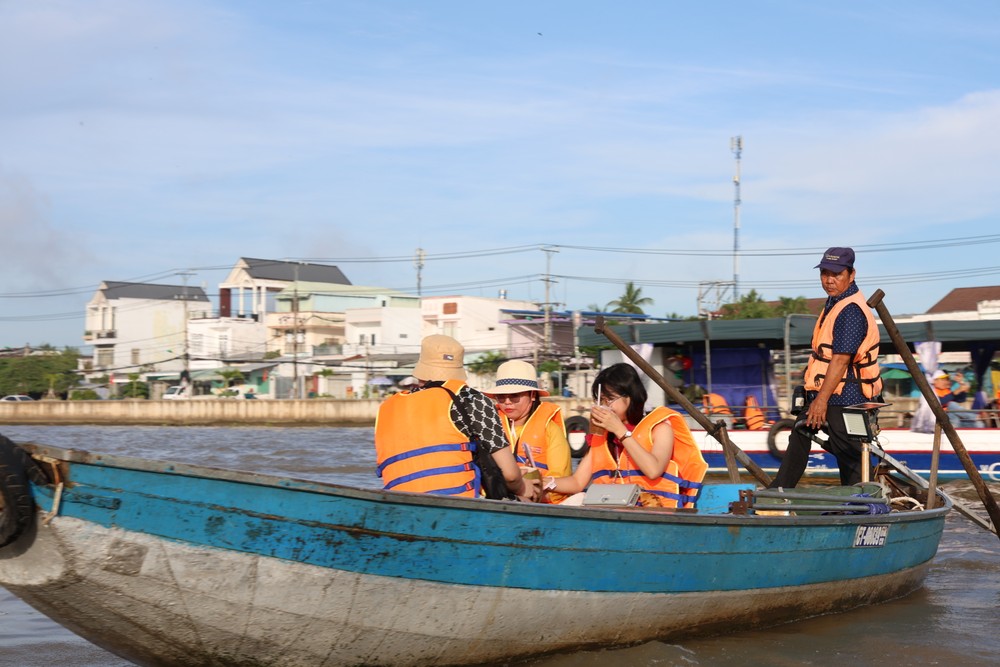
The Cai Rang Floating Market in Can Tho became a magnet for thousands each day, buzzing with boats before dawn. Departing from Ninh Kieu Wharf, tourists cruised seven kilometers along the Can Tho River, passing Quang Trung, Hung Loi, and Cai Rang bridges before arriving at the bustling market, where floating breakfasts offered a serene yet distinctly Southern experience. Tour operators reported that holiday traffic to Cai Rang nearly doubled compared to normal days.
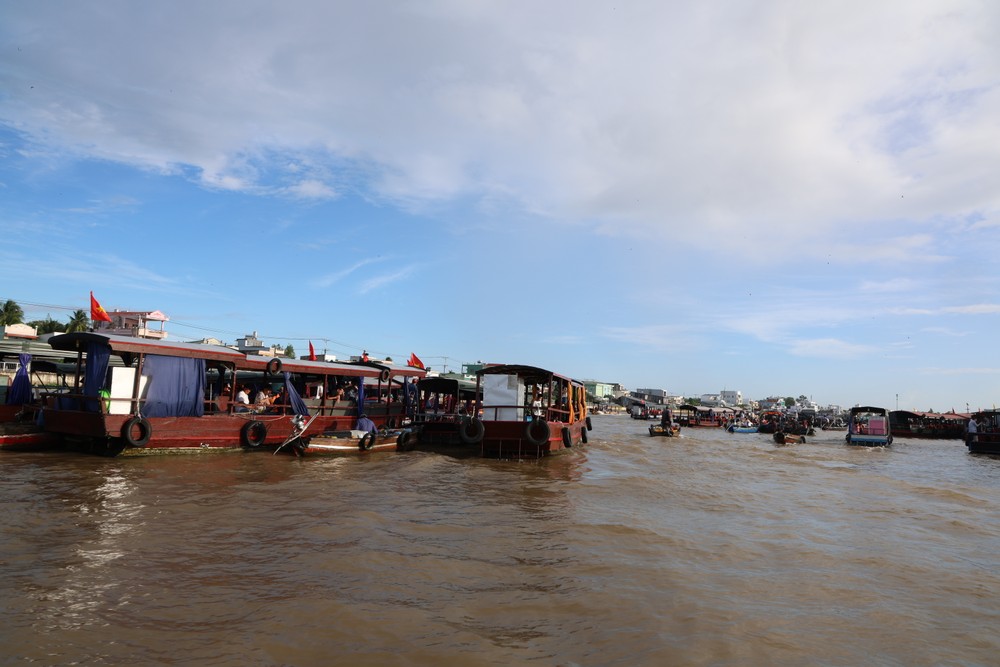
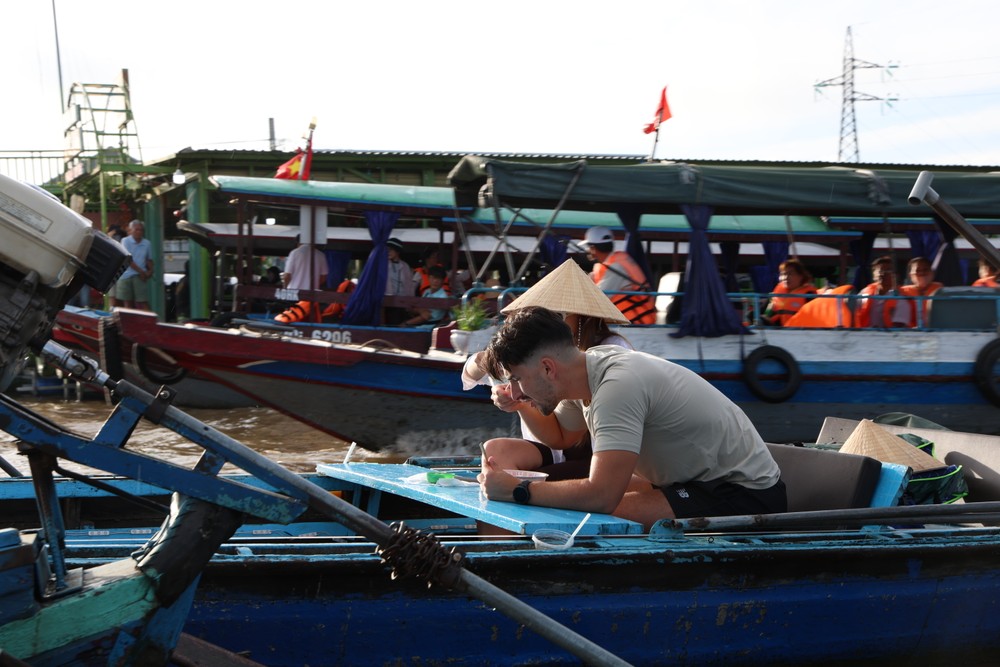
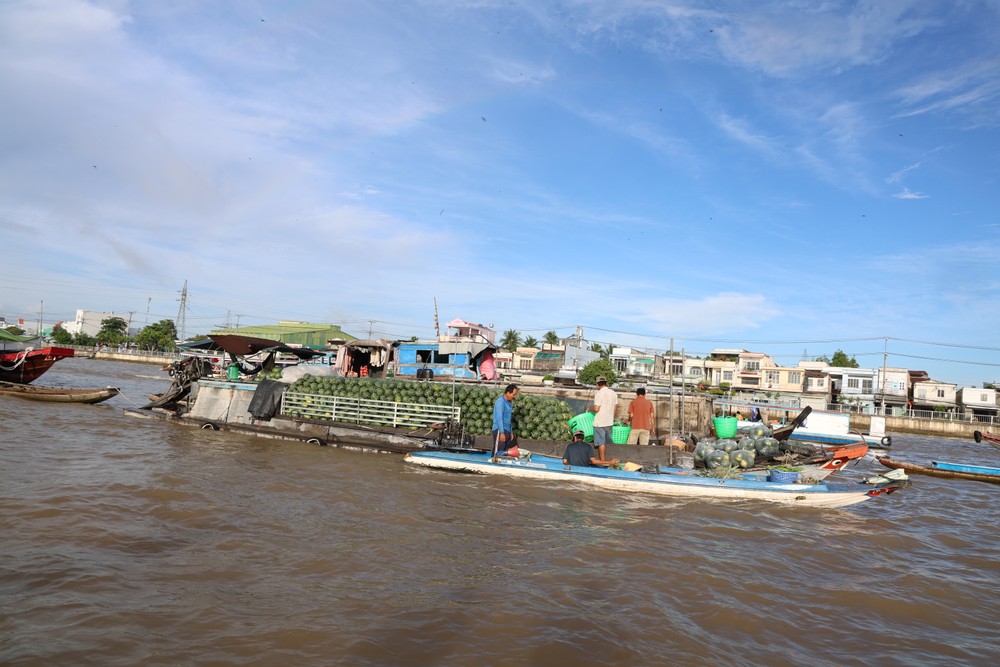
Unlike the bustle of urban tourism, Can Tho’s riverine eco-tours captivated travelers with lush scenery, fresh air, and authentic rural experiences. From My Khanh Tourist Village and Bang Lang Stork Garden to fruit orchards in Phong Dien, laughter echoed everywhere. Guests delighted in casting nets for fish, paddling through narrow canals, savoring rustic dishes, and immersing themselves in the melodies of don ca tai tu (Southern amateur music). Many also opted for homestays with local families, embracing the simplicity and warmth of delta hospitality.
Meanwhile, in Vinh Long—the famed “Coconut Land”—cultural-ecological tourism is fast taking root. Nguyen Nhu Huyen, Deputy Director of Sales and Marketing at Ben Tre Riverside Resort, noted that the merger of Vinh Long, Ben Tre, and Tra Vinh has unlocked vast opportunities to position the region as a garden tourism hub with a distinct identity.
Among its newest offerings is the “A Glimpse of Ham Luong” tour—a journey back to riverine memories, re-creating rustic life along the Ham Luong River. Visitors stroll shaded village lanes lined with coconut trees, taste specialties like coconut rice, braised goby fish in coconut water, and Vietnamese pancakes with coconut stem, and try their hand at harvesting coconuts, paddling sampans, or listening to Southern amateur music. The tour is designed not only for sightseeing but also for living and breathing the cultural essence of the delta, while laying the foundation for sustainable tourism branding in Vinh Long.

In Dong Thap, Thoi Son Islet on the Tien River proved equally popular, with its 1,200 hectares of thriving fruit orchards. Tourists glided along winding canals shaded by nipa palms and mangrove apple trees, enjoyed honey tea, learned to make coconut candies and puffed rice, and listened to Southern amateur music performances.
Chairman of Dong Thap People’s Committee Tran Tri Quang noted that tourism promotion has yielded remarkable results: in the first seven months of 2025 alone, Dong Thap welcomed over 4.3 million visitors—including nearly 363,000 international arrivals—with total revenue exceeding $112 million.
